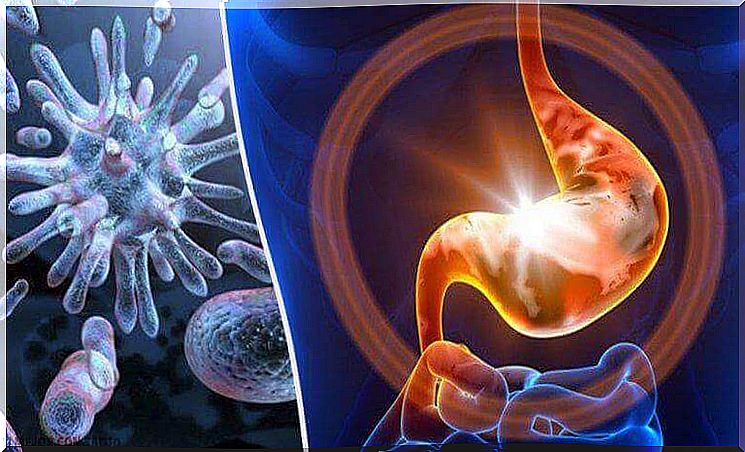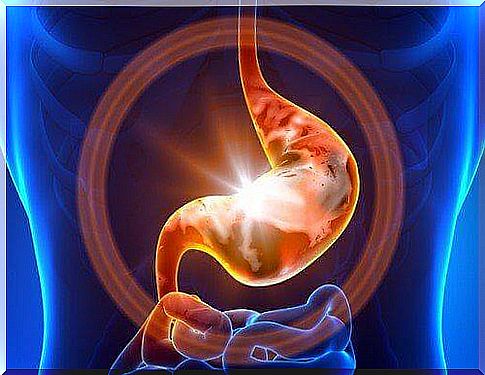Gastroenteritis: Symptoms And Prevention
Gastroenteritis is a disease caused by bacteria in various ways, including contaminated food. We have compiled some key facts about the disease.

Many people experience gastroenteritis without looking for symptoms or seeing a doctor the first day. Often we think we just ate something wrong.
But the typical signs of gastroenteritis, or colloquially: gastrointestinal flu, do not go away anytime soon. Nausea, vomiting, and diarrhea along with pain in the abdomen are usually more protracted. Some patients take a few days to realize that they have a more serious infection.
The time between infection with the disease and its first outbreak is called the incubation period. In gastroenteritis, it depends on the type of infection. It can last anywhere from a few hours to a few weeks, but it is usually 2 or 3 days.
What is gastroenteritis?

Infection in gastroenteritis begins in the stomach. Usually the cause is bacteria that have been ingested through food. When these bacteria attack the lining of the stomach, they cause inflammation and swelling.
In rare cases, gastrointestinal flu can also occur as a side effect of pain relievers or anti-parasite medication. The abuse of alcohol or cocaine, but also stress, can be triggers.
Symptoms
The most common gastrointestinal flu symptoms are:
- Burning in the upper part of the abdomen
- Burp
- hiccup
- Nausea and vomiting
- diarrhea
- Feeling of fullness after eating
- Loss of appetite
These symptoms usually appear from the first day of infection, sometimes all at the same time or only occasionally. It is important to look out for these symptoms as they indicate how far the infection has progressed. While some people have severe symptoms, others can have mild symptoms.
Tips in case of infection
You should see a doctor right away if you experience any of the symptoms. However, there are a few tips that can help you get through the time to see a doctor:
- Keep your stomach and intestines empty. If there is no food in the digestive tract, the infection cannot spread and the inflammation heals. So you shouldn’t eat at first if there are signs of gastroenteritis.
- Only eat small amounts. Start with natural foods, such as unsweetened natural yogurt. The bacteria in yogurt are very beneficial for the intestinal flora. It is important that you avoid sugar in order not to provide a breeding ground for the bacteria to spread. Small amounts of rice and bread are also okay.
- Drink lots of water. Drink in very small sips, about 2 tablespoons in 5 minutes. In this way, you are effectively supplying your body with water, especially if you have diarrhea.
Even after the symptoms have subsided, you should eat small, regular meals for a while. Avoid spicy, acidic, fatty foods and alcohol. Herbal teas will also help calm your stomach and relieve stomach pain. Stress relief techniques, such as meditation and yoga, can also be very helpful.
How does the disease spread?

Gastrointestinal flu is common around the world and can be transmitted in a number of ways:
- through contaminated food or
- from person to person (This happens when an infected person does not wash their hands adequately after using the toilet. The infection can then occur through touch or food.).
- It can rarely be transmitted by droplet infection (when you cough or vomit).
- Infected water can also be the cause.
prevention

Hygiene is a critical factor in preventing gastroenteritis. Because if a person in the household is sick, certain precautionary measures must be observed so that the disease does not spread. Some tips for prevention are:
- Use disinfectant to clean the toilet.
- Avoid sharing towels and other household items with people who are showing symptoms.
- Wash your hands regularly and make sure that everyone in the household is doing the same.
- If the drinking water is unsafe, boil it as a precaution or drink bottled water.
- Wash vegetables and fruits thoroughly before eating.
- Always keep foods like cheese, milk, butter, and meat in the refrigerator.
See a doctor immediately if there are signs of gastroenteritis and be sure to follow your doctor’s advice.









